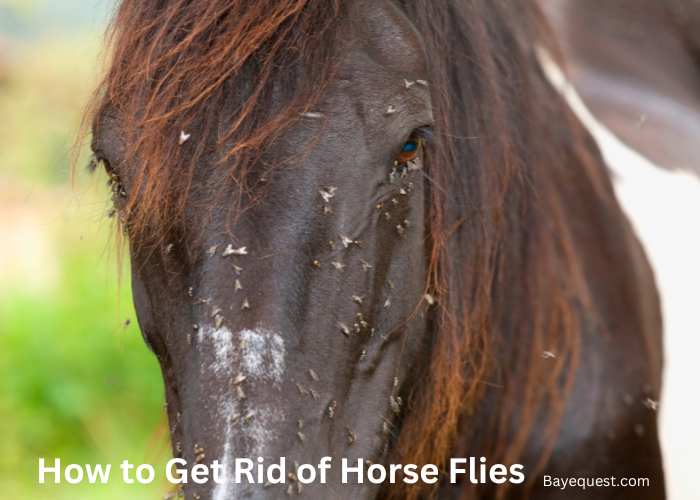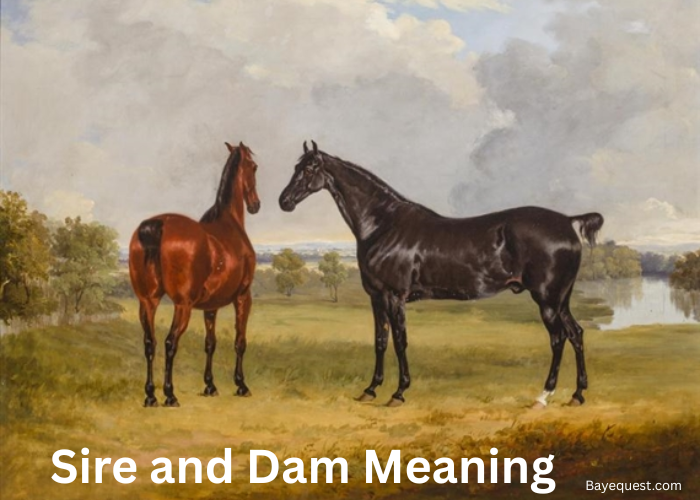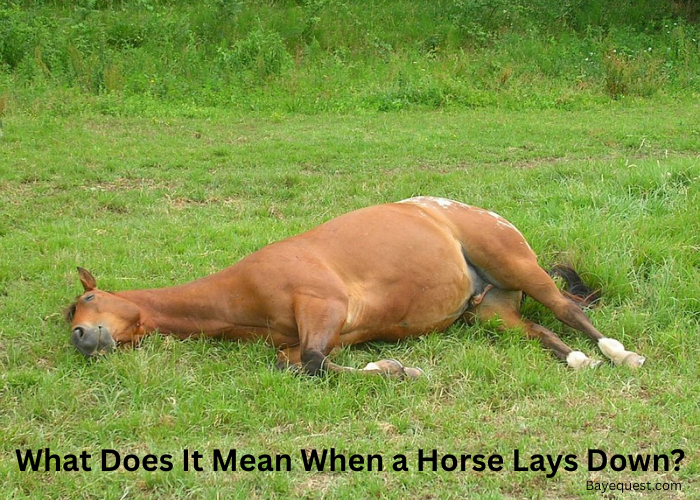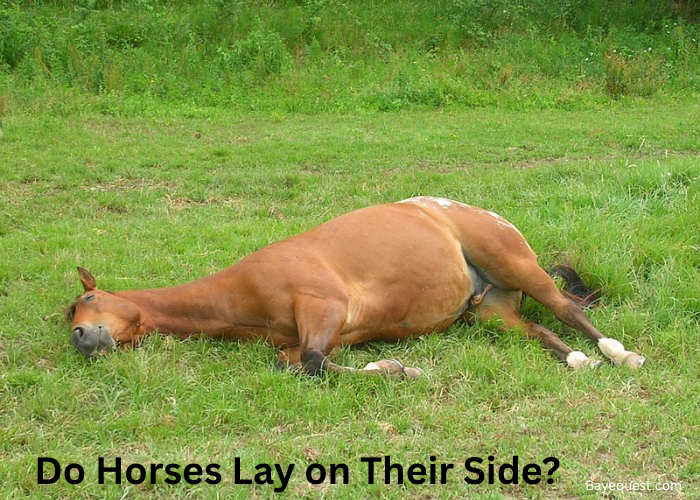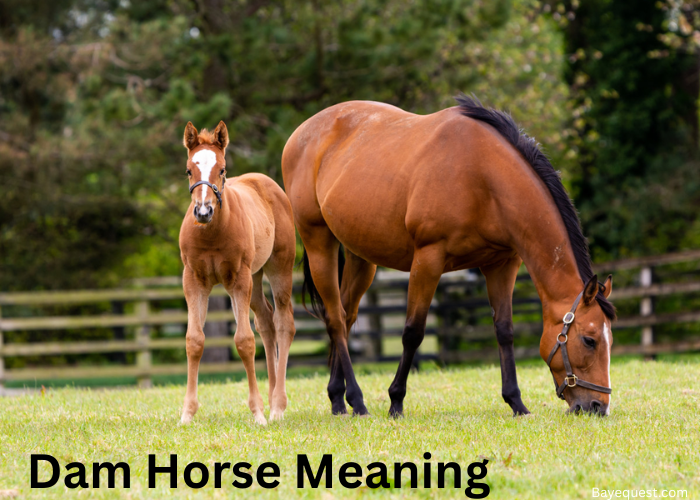Horse flies can turn peaceful moments into battles of frustration. Their bites aren’t just irritating for you—they cause misery for your animals too.
These relentless pests invade gardens, ruin picnics, and trouble horses, leaving everyone on edge.
But you don’t have to endure their buzzing tyranny any longer. It’s time to take control and send these unwelcome intruders packing.
With the right strategies, you can reclaim your space and bring back the peace you deserve.
Let’s dive into the best ways to banish horse flies for good.
How to Get Rid of Horse Flies: Key Takeaway
Getting rid of horse flies starts with taking proactive steps. Use traps, repellents, and natural methods to keep these pests at bay. Keep your surroundings clean and eliminate standing water to reduce their breeding grounds. By combining different strategies, you can find what works best for your needs.
How Do Horse Flies Look Like?
Ever wondered what those pesky horse flies look like?
They’re bigger than your average housefly and quite a bit more menacing. With their hefty, dark bodies and large, bright eyes that almost seem to glow, they’re hard to miss.
These flies are not just big, they’re fast fliers too, making them a real challenge to swat away.
And watch out—those females pack a bite that’s far from friendly, all thanks to their scissor-like mouthparts.
So next time one zooms by, you’ll know exactly who you’re dealing with.
Horse Fly Behavior and Habits
Horse flies are quite the characters when it comes to their behavior and habits.
First off, these insects are aggressive biters. It’s the female that does the biting, because she needs blood to help her eggs develop.
She’s not picky about where it comes from—cattle, horses, humans, you name it. Meanwhile, the males stick to sipping nectar from flowers.
These flies are most active during the day, especially sunny days. They aren’t just buzzing around aimlessly.
They’re quite good at spotting movement and will zero in on anything that moves. You might find horse flies particularly bothersome when hiking or working in your yard.
When it comes to their hangout spots, horse flies love being near water or in wet areas, where the females lay their eggs.
The larvae then grow up in these moist environments, feeding on organic material until they emerge as adults.
So, next time you’re swatting away at a horse fly, remember—it’s all part of their natural hustle to survive and thrive.
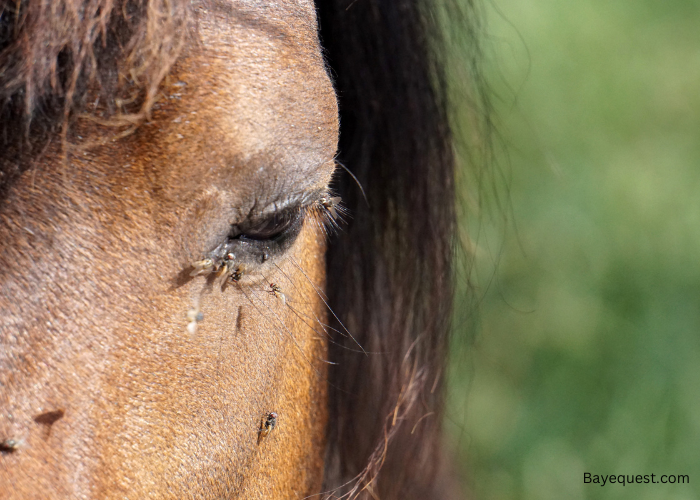
How Do You Get Rid of Horse Flies?
To actively get rid of horse flies that have already become a nuisance, you can use a combination of direct removal methods and traps.
Here’s how you can effectively tackle an existing horse fly problem
Burn candles and torches
Using candles and torches that emit smoke or have insect-repellent properties can help keep horse flies at bay.
The smoke confuses horse flies, and certain scents like citronella can actively repel them.
Set up these candles or torches around the perimeter of your outdoor areas, where you spend time to create a horseflies repellent barrier.
Using insecticides
If the infestation is severe, insecticides can be an effective solution. Choose insecticides formulated to target flies and apply them according to the manufacturer’s instructions.
Be mindful of where you spray, especially around areas where children and pets play.
For best results, target areas where horse flies are seen most frequently or where they might breed.
Use of chemical sprays
For immediate relief from horse flies, consider using chemical sprays designed to kill on contact.
These sprays can be applied directly to horse flies or areas where they are frequently seen.
Follow the product instructions closely to ensure safe and effective use. Make sure to use these sprays outdoors and away from food, pets, and children.
Setting up horse fly traps
Horse fly traps are an effective way to catch and kill these pests. There are several types of traps, including sticky traps, bait traps, and UV light traps.
Sticky traps use a sticky surface to catch flies that land on them, while bait traps lure flies in with an attractant and trap them inside.
UV light traps attract horse flies with light and then trap or electrocute them. Position these traps around your property, particularly near breeding sites.
Water and dish soap trap
A simple homemade trap can be made using a large bowl filled with water and dish soap.
The water attracts the flies, and the soap decreases the water’s surface tension, causing the flies to sink and drown when they attempt to land.
Place the bowl in a sunny spot to increase its effectiveness.
Electronic swatters
For areas where horse flies are a constant annoyance, electronic swatters can be a practical solution.
These handheld devices kill flies on contact with an electric charge. They are especially useful for immediate relief when spending time outdoors.
Professional pest control
If the horse fly problem is extensive or if DIY methods fail to control the population, it might be time to call in professional pest control services.
They can provide more powerful solutions and targeted treatments to reduce the horse fly population.
How to Prevent Horseflies
Preventing horse flies from becoming a nuisance involves creating an environment that’s less attractive to them.
Here’s how to effectively keep horse flies at bay using various preventive measures:
Maintain your yard
Keeping your yard well-maintained is key. Mow the lawn regularly, trim back bushes, and clear out any brush or tall weeds where horse flies might like to rest.
This reduces the shady, cool areas they favor and limits their hiding spots.
Remember, a tidy yard is less attractive to these flies because it provides fewer places to breed or shelter.
Remove garbage
Garbage can attract horse flies as it often contains food scraps or is located near areas where these flies breed.
Ensure your garbage cans have tightly fitting lids and are emptied and cleaned regularly.
Keep them as far away from your home and outdoor living spaces as possible.
Minimizing odors and potential breeding sites decreases the chances of horse flies hanging around.
Clean up after pets
Pet waste is a big attractant for many pests, including horse flies.
Cleaning up after your pets immediately ensures that horse flies won’t be drawn to your yard looking for easy breeding grounds or food sources.
Regularly dispose of pet waste and ensure that areas where your pets spend a lot of time are kept clean.
Use horsefly repellents
Applying horse fly repellents is a straightforward way to keep these pests away. Look for repellents that are specifically formulated to deter horse flies.
These can be applied directly to your skin or clothing when spending time outdoors.
For animals, especially horses, there are repellents available that can be applied to their coats to protect them from bites.
Horsefly traps
Installing horse fly traps around your property can reduce their population.
These traps work by mimicking the heat and movement of animals, attracting horse flies and then trapping them.
Place the traps in sunny areas where horse flies are active. Put them away from the areas where people and animals frequent, as the traps attract more flies.
Essential oils
Many essential oils are natural horse flies deterrent. Oils such as citronella, eucalyptus, peppermint, and lavender have repelling properties.
You can use these oils by applying them to your skin after diluting them with a carrier oil or by using diffusers in outdoor areas to create a protective barrier against horse flies.
Use horse blankets
For horse owners, using specially designed horse blankets can provide a physical barrier that protects your animals from horse fly bites.
These blankets are made from a fine mesh that allows air to circulate while keeping flies out. They cover the major parts of the horse’s body where flies bite.
Using fine mesh screens
Installing fine mesh screens on windows, doors, and other openings can help prevent horse flies from entering your home or barn.
These screens are particularly useful during the horse fly season and in areas where these flies are prevalent.
Ensure the mesh is fine enough to keep out even the smaller insects.
When is the Worst Time of the Year for Horse Flies?
The worst time of the year for horse flies is usually the hot summer months. These pests thrive in warm weather, so as the temperatures rise, does their activity.
You’ll often find them buzzing around from late spring through to early fall. This is when they’re out looking for blood meals to help them reproduce.
So, if you plan to spend a lot of time outdoors during these months, be prepared to face these biting flies.
Remember that horse flies are especially active on sunny days with little wind. This can make those perfect summer days a bit more challenging if you’re trying to avoid their bites.
What is the Best Fly Spray for Horses?
Fly Bye Plus is hands-down the best fly spray you can get for your horse. Yes, it’s pricey, but it’s worth every penny.
This spray uses advanced soybean technology to tackle flies at a molecular level. What’s cool? Flies sense it and fly away, or they die if they don’t.
It’s a smart, effective way to keep flies, mosquitoes, and gnats off your horse.
Plus, it’s non-toxic and 100% biodegradable. Safe for your horse, safe for you, and safe for the planet.
Fly Bye Plus isn’t just a fly spray; it’s peace of mind in a bottle.
Check out our article, “Best Fly Sprays for Horses” to discover the most effective options for keeping your equine friends comfortable and fly-free.
Types of Fly Sprays
Several types of fly sprays are available that cater to different needs and preferences. Here’s a list of common types:
Chemical-based sprays. These sprays contain synthetic insecticides like permethrin, pyrethrin, or DEET, which are effective at quickly killing or repelling horse flies.
Natural or organic sprays. Made from natural ingredients such as essential oils, these sprays are the best to avoid synthetic chemicals. They are safer for use around children and pets but may need more frequent application.
Water-based sprays. These are less oily than alcohol-based sprays and are less likely to irritate the skin or damage surfaces where they are sprayed. They can be a good choice for sensitive skin.
Oil-based sprays. These have a longer-lasting effect as the oil helps to hold the active ingredients on the skin or surface longer. However, they can feel greasier and may stain fabrics.
Alcohol-based sprays. These types of sprays dry quickly and are effective at dispersing the active ingredients over a large area. They can be harsher on the skin and flammable.
Automatic dispensers. For continual fly control, these devices release a mist of fly spray at set intervals. They are ideal for stable setups, barns, or large indoor spaces.
Wipe-on products. While not sprays, these are worth mentioning as an alternative application method. They are great for precise application in sensitive areas, particularly on animals.
What Smell Attracts Horse Flies?
Horse flies are primarily attracted to carbon dioxide, body heat, and certain odors that animals and humans emit.
Let’s go through smells that attract horse flies:
Sweat and body odors
Horse flies are drawn to the smell of sweat, which contains lactic acid, ammonia, and other compounds.
Animal scents
The smell of livestock and other animals, especially their body heat and the carbon dioxide they exhale, is highly attractive to horse flies.
Decaying organic material
Horse flies are sometimes drawn to areas where organic matter, such as decaying vegetation or animal waste, is present.
Dark and sweet smells
Some sweet or musky odors can also attract horse flies, depending on the environment and species.
What Scent do Horse Flies Hate?
Horse flies dislike certain scents, especially those that naturally repel insects. Here are some scents that horse flies hate:
Essential oils
- Lavender: Its strong floral scent is a natural horse flies repellent.
- Eucalyptus: The sharp and camphor-like smell drives away horse flies effectively.
- Tea tree oil: Known for its potent aroma, tea tree oil works as a natural deterrent.
- Peppermint: The cool, minty scent is unpleasant to horse flies.
- Citronella: Widely used to repel horse flies and mosquitoes, its strong citrus-like smell keeps bugs away.
Vinegar. The strong, sour smell of white vinegar or apple cider vinegar can repel horse flies.
Garlic. Horse flies dislike the pungent aroma of garlic. Applying garlic oil or consuming garlic may help reduce their attraction to you.
Basil. The herbal scent of basil plants or oil can act as a natural fly repellent.
Cedarwood. Cedarwood oil emits an earthy, woody scent that horse flies find unpleasant.
Do Horse Flies Bite?
Yes, horse flies do bite. Only the females bite because they need blood to help their eggs develop.
These bites can be painful because the female horse fly cuts into the skin with her sharp mouthparts.
She then laps up the blood that comes out. So, if you feel a sharp pinch while outside, especially near water or wooded areas, it might just be a horse fly.
Read also: Best Fly Sheets for Horses.
How to Get Rid of Horsefly: Conclusion
Whether you choose traps, repellents, or natural methods, staying proactive is key. Remember, keeping your surroundings clean and water-free cuts down their breeding spots.
Try different strategies and find what works best for you. Here’s to enjoying a horse fly-free environment, making your outdoor moments more enjoyable.
Stay vigilant and prepared.




